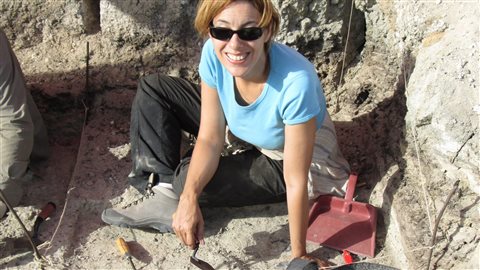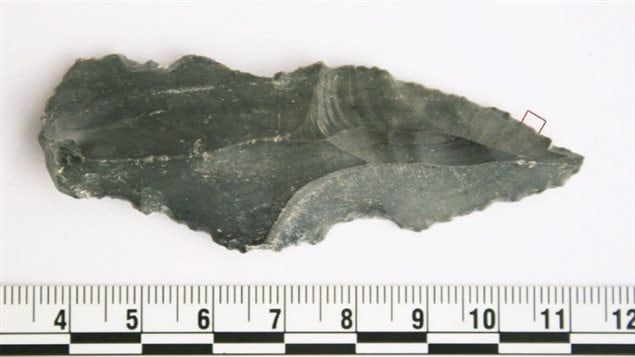A Canadian-led team of archaeologists has uncovered the oldest evidence of human hunting and scavenging activities–dating back 250,000 years–by extracting proteins from Stone Age tools.
That’s a giant leap.

Previous oldest protein evidence from early human tools was dated at 11,500 years old.
The tri-national team, made up of archaeologists from Canada, Jordan and the United States, spent three years in Jordan, where they excavated 10,000 stone tools, including scrapers, flakes, projectiles and hand axes.
Forty-four were selected for testing and 17 tested positive for protein residue, with blood and other animal products from butchered horses, rhinos, cows and ducks.
“What makes this study significant is that our results are not only the oldest identified proteins in the world but they also provide direct evidence of exploitation of specific animals by those hominins,” says expedition leader and University of Victoria paleoanthropologist April Nowell.
Nowell says that because the ages of proteins and other food by-products can now be better measured, the new research has the potential to revolutionize knowledge of early human diets.
The findings were published Monday in the Journal of Archaeological Science.
Nowell spoke by phone with RCI Tuesday from Victoria.
Listen






For reasons beyond our control, and for an undetermined period of time, our comment section is now closed. However, our social networks remain open to your contributions.